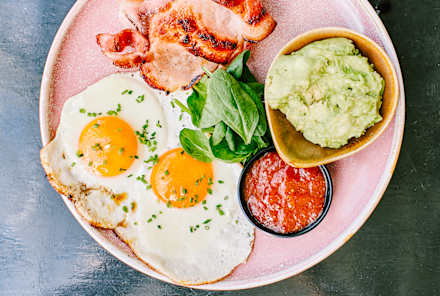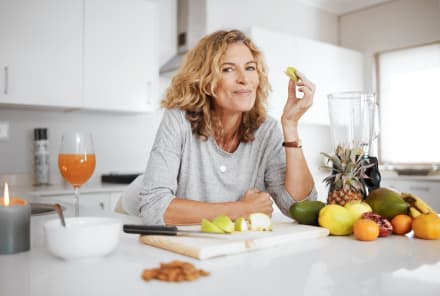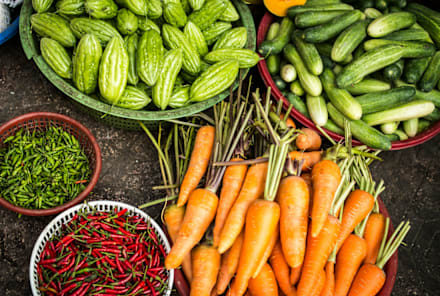Advertisement
A Few Really Good Reasons To Avoid "Hyper-Palatable" Foods + What To Swap Them With


With a never-ending assembly line of delicious, addicting snacks, fueling your body with healthy foods can feel like an uphill battle. And now, a study published in Nature1 showed that hyper-palatable foods may be especially disruptive to your metabolic health and weight loss goals.
What are hyper-palatable foods?
You might have been able to guess it by the name, but hyper-palatable foods are those with a special combination of sugar, fat, salt, and/or carbohydrates that make them tough to put down. More specifically, one study in the journal Obesity defined hyper-palatable foods as those characterized by one of the following:
- 25% or more of their calories come from fat, and salt comprises 0.03% of their weight
- 20% or more of their calories come from fat and 20% come from sugar
- 40% or more of their calories come from carbohydrates, and salt comprises 0.2% of their weight
Two good examples of these types of foods are chips, which combine high amounts of salt and carbohydrates, and cookies, which combine high amounts of sugar and fat. Knowing how addictive these foods are, it doesn't come as a big surprise this recent study linked them to overeating.
What causes overeating?
This study from researchers at the University of Kentucky analyzed existing nutritional data and tried to draw connections between dietary factors and overeating. They found that three factors were clearly linked to overeating: how quickly the meal was eaten, how energy-dense the foods were (in other words, how many calories per gram), and how much of these hyper-palatable foods were eaten.
Unfortunately, hyper-palatable foods are everywhere, meaning they're both hard to stop eating and hard to avoid eating in the first place. In fact, that Obesity study found that 62% of foods sold in the United States met the hyper-palatable qualifications. Breaking it down, most of the commonly sold hyper-palatable foods (70%!) were high in fat and salt, 25% were high in fat and sugar, and 16% were high in salt and carbohydrates.
Many people are unaware that so many foods meet the qualifications for being hyper-palatable and may be falling victim to the addictive properties of these foods without even knowing it.
According to University of Kansas scientist and lead researcher Tera Fazzino, a big part of this study is simply increasing public awareness.
"We hope to get the information about hyper-palatable foods out there for individuals to consider as they make dietary choices, and we hope that scientists continue to examine hyper-palatable characteristics as a potential factor influencing energy intake," she said in a statement.
How to promote satiety
Eat satiating foods
The good news is that while there are many hyper-palatable foods, there are also hyper-satiating foods.
One study created a satiety index2 and found that out of 38 common foods, a handful was able to promote satiety more than others.
Eggs, oatmeal, and Greek yogurt were some of the standouts.
Eat plenty of fiber
Fiber is not only key to digestive regularity, blood sugar balance, and a healthy gut but also satiety.
Fortunately, there are plenty of delicious high-fiber foods you can incorporate into your day, as well as fiber supplements to make sure you're getting enough of the complex carb.
Don't know where to start? Try one of these 12 top-ranked fiber supplements, all backed by a nutrition Ph.D.
Eat mindfully
One thing we learned from this study is that scarfing down food can also lead to overeating.
This is a great reminder to slow down, minimize distractions, and try to enjoy your food at a pace that allows you to really appreciate and experience its flavors, smells, and textures.
Here are a few tips from a dietitian about how to improve digestion by eating more mindfully.
The takeaway
A study just linked hyper-palatable foods—those that are high in salt, fat, carbs, and sugar—to overeating.
It's yet another reason to swap out highly processed chips and cookies for whole foods that are more nourishing, satiating, and fiber-packed.


















